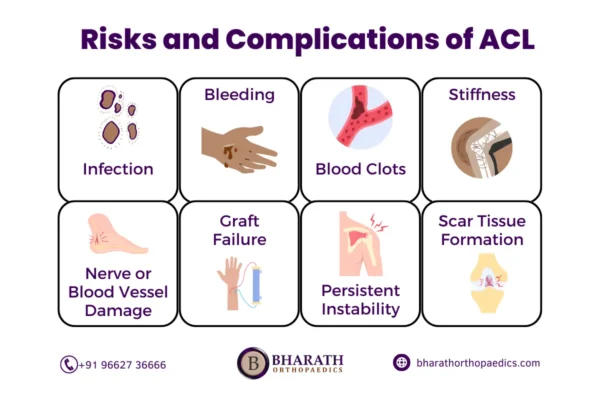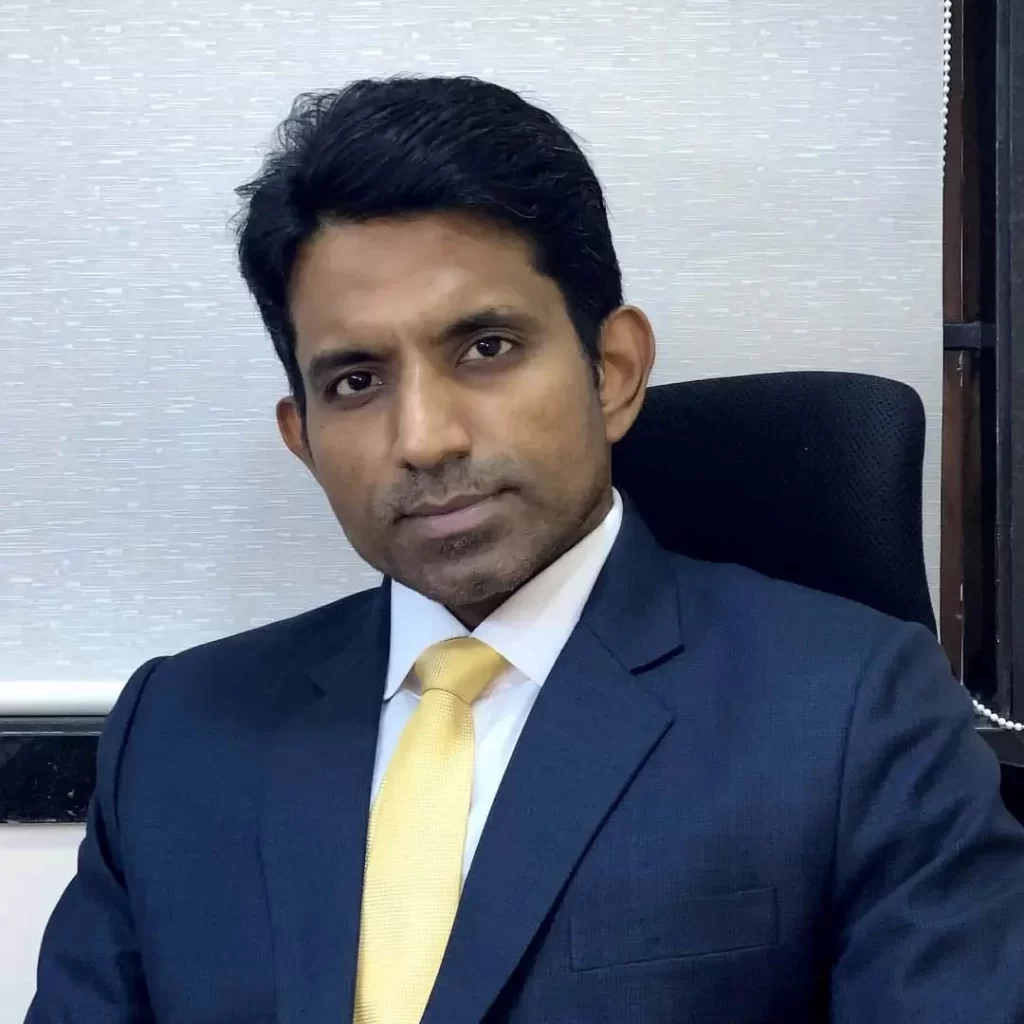When it comes to knee injuries, an anterior cruciate ligament (ACL) tear can be particularly debilitating. ACL surgery in Chennai is often the recommended course of action to restore stability and functionality to the knee joint. In this article, we will explore the key aspects of ACL surgery, including pre-surgery preparations, surgical techniques, post-operative care, and the crucial rehabilitation process. By understanding what to expect and how to optimize your recovery, you can enhance your chances of a successful outcome and regain an active and pain-free lifestyle at the best ACL surgery cost in Chennai.
What is ACL Surgery?
ACL (Anterior Cruciate Ligament) surgery is a procedure to reconstruct or repair a torn ACL in the knee. The ACL is crucial for stabilizing the knee joint during activities like pivoting or jumping. Surgery typically involves using graft tissue, often from the patient’s own body or a donor, to reconstruct the ligament. This procedure is performed arthroscopically, using small incisions and specialized instruments to minimize trauma. Post-surgery, physiotherapy treatment is crucial to regain strength, stability, and range of motion in the knee. ACL surgery aims to restore knee function and stability, allowing individuals to return to sports and daily activities effectively.
ACL reconstruction is a vital surgery for individuals who have suffered a torn anterior cruciate ligament, as it helps restore knee stability and normal movement. In Chennai, patients with knee ligament injuries, including posterior cruciate ligament tear in Chennai, often seek timely evaluation to prevent long-term complications. In this article, we will explore the procedure, cost, and recovery process involved in ACL reconstruction.

Types of ACL surgery
There are primarily two types of ACL (Anterior Cruciate Ligament) surgery based on the source of the graft used for reconstruction:
- Autograft ACL Surgery:
- Patellar Tendon Autograft: The middle third of the patellar tendon, along with bone blocks from the patella and tibia, is harvested and used as the graft.
- Hamstring Tendon Autograft: The tendons of the hamstring muscles (gracilis and semitendinosus) are harvested and used as the graft.
- Quadriceps Tendon Autograft: A portion of the quadriceps tendon, along with its patellar bone block, can be used as an alternative autograft option.
- Allograft ACL Surgery:
- Tissue grafts sourced from a human donor (cadaver) are used for ACL reconstruction. Common allograft options include patellar tendon, hamstring tendon, or Achilles tendon grafts.
Each type of ACL surgery has its advantages and considerations, including graft strength, healing time, and risk of graft rejection or infection. The choice of graft type often depends on factors such as patient age, activity level, surgeon preference, and the specific characteristics of the ACL injury.
Symptoms of ACL Injury
- Sudden Popping Sensation in the Knee: One of the most immediate signs of an ACL tear is a loud “pop” at the moment of injury. This is often followed by rapid swelling and instability, which may lead individuals to seek ACL surgery in Chennai to prevent further joint damage.
- Instability or Buckling of the Knee: People with a torn ACL often feel as though their knee may give out during physical activities. This loss of stability is a major reason why many opt for the best ACL reconstruction in Chennai to regain full functional control.
- Rapid Swelling and Stiffness: Within hours of the injury, the knee joint typically becomes swollen due to internal bleeding. Persistent stiffness and limited range of motion often lead patients to consult specialists offering ACL surgery in Chennai.
- Inability to Continue Physical Activity: Athletes and active individuals may be unable to resume their sport immediately due to pain and lack of knee support. In such cases, the best ACL reconstruction in Chennai becomes essential for returning to previous performance levels.
- Pain and Discomfort While Walking or Turning: The pain from an ACL injury is often localized and worsens with movement, especially while changing direction or pivoting. These symptoms highlight the need for timely diagnosis and appropriate surgical solutions.
Benefits of the ACL Surgery
ACL (anterior cruciate ligament) surgery offers several benefits, including:
- Stability Restoration: Surgery stabilizes the knee joint, preventing instability and reducing the risk of recurrent injuries.
- Improved Function: Restoring the ACL enhances joint function, promoting better mobility and agility.
- Pain Reduction: Surgery often alleviates pain associated with ACL injuries, improving overall quality of life.
- Return to Activities: It facilitates a return to sports and other physical activities with reduced risk of re-injury.
- Preventive Measure: ACL surgery can prevent long-term joint damage and reduce the likelihood of developing osteoarthritis.
- Enhanced Quality of Life: Overall, ACL surgery aims to improve the patient’s quality of life by addressing pain, instability, and limitations in physical activities.
ACL Reconstruction Surgery Steps
The ACL reconstruction procedure is a well-established method to restore knee stability after an injury. Below are the main steps involved in the surgery:
- Anesthesia and Preparation: The patient is put under general anesthesia. The surgeon marks the surgical site, and sterile drapes are applied to maintain a clean environment during the procedure.
- Incision and Arthroscopy: Small incisions are made around the knee to insert an arthroscope. This allows the surgeon to view the inside of the knee joint on a monitor.
- Removal of Damaged Tissue: The torn ACL is carefully removed, and any damaged tissue is cleaned.
- Graft Placement: A graft, often taken from the patient’s own tendon or a donor tendon, is used to reconstruct the ACL. It is fixed to the bone using screws or other fixation devices.
- Closing the Incisions: After the graft is placed, the incisions are closed using sutures. A bandage is applied to reduce swelling.
The ACL surgery cost in Chennai depends on factors like the hospital and type of graft used, but the procedure ensures optimal outcomes for those seeking the Best ACL Reconstruction in Chennai.
ACL Surgery Doctor in Chennai
Dr. L. Bharath
Dr. L. Bharath, a distinguished orthopedic surgeon at Bharath Orthopaedics, is widely recognized for his expertise in ACL Surgery in Chennai. With an MBBS, MS in Orthopedics, and FRCS from the UK, Dr. Bharath combines extensive academic knowledge with hands-on experience in performing complex knee surgeries, including ACL reconstruction surgery. His approach to ACL surgery is both comprehensive and patient-centered, ensuring that every individual receives a tailored treatment plan. Known for using advanced surgical techniques, he emphasizes minimally invasive procedures that minimize recovery time and improve patient outcomes.
- Years of Experience: Over 20+ years
- Qualifications: MBBS, MS (Orthopaedics), DNB (Orthopaedics)
- Available Time: Mon-Sat 9 am to 8 pm | Sun – 10 am to 3 pm
- Address: Flat-A Ground Floor , Balaji Villa, New Door No.38/1, Old Door No.9/1, Rajaratnam Street, Kilpauk, Chennai-600010.

Postoperative Care and Instructions
- Pain Management and Medication Adherence: After ACL surgery, managing pain is crucial for a smoother recovery. Your ACL surgery doctor in Chennai may prescribe anti-inflammatory drugs or mild pain relievers to reduce discomfort and swelling.
- Elevation and Cold Therapy: Keeping the leg elevated and applying ice packs intermittently for the first few days helps reduce inflammation. These steps also support quicker healing and minimize complications that could increase the ACL surgery cost in Chennai.
- Physical Therapy and Rehabilitation: Structured physiotherapy is essential to regain knee strength, flexibility, and range of motion. Following a program designed by your ACL surgery doctor in Chennai can significantly improve surgical outcomes and long-term joint stability.
- Wound Care and Hygiene: It’s important to keep the surgical site clean and dry to avoid infection. Poor wound care could result in additional treatments, thereby affecting the overall ACL surgery cost in Chennai.
- Gradual Return to Activities: Patients are advised to avoid strenuous activities and sports until the knee is fully healed. Returning too soon may risk graft failure, prolonging recovery and possibly requiring additional intervention.
- Use of Braces and Assistive Devices: Knee braces or crutches may be recommended to support the joint during the early stages. These tools help maintain balance and reduce stress on the healing ligament.
Why Choose Dr. Bharath for ACL Surgery?
Choosing the right doctor for ACL surgery matters. It affects your recovery, mobility, and long-term knee health. Dr. Bharath is a trusted orthopaedic surgeon with strong experience in treating sports and ligament injuries, including complex cases such as a posterior cruciate ligament tear in Chennai.
He carefully evaluates each patient before suggesting surgery. Not everyone needs the same treatment. Dr. Bharath follows a patient-focused approach and explains every step clearly. This helps patients feel confident and informed.
He uses proven surgical techniques and modern equipment to improve accuracy and safety. The goal is stable knee movement and faster recovery. Post-surgery care is given equal importance. Rehabilitation plans are designed to support healing and strength.
Patients receive personal attention before and after surgery. Follow-ups are regular and focused on progress. The clinic environment is clean, calm, and well-organized.
With consistent outcomes and clear communication, many patients trust Dr. Bharath for knee ligament treatment. This commitment to care makes the clinic a preferred choice for the best ACL surgery in Chennai.
Conclusion
Choosing the best ACL surgery in chennai at a reasonable ACL surgery cost in Chennai maximizes the chances of a successful outcome. By partnering with a skilled orthopedic surgeon like Dr. L. Bharath from Bharath Orthopaedics, you can regain strength, stability, and functionality in your knee during the healing process. Furthermore, patience, dedication, and working closely with your healthcare team will help you achieve the best ACL reconstruction in Chennai. Trust an experienced ACL surgery doctor in Chennai to help you get back to an active and fulfilling life.
Read also Recovery from Hip Replacement.
